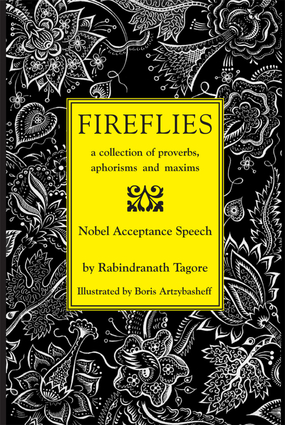Overview
FIREFLIES were proverbs, aphorisms and maxims originated in China and Japan and were often written on pieces of silk. Tagore visited Japan and collected them in his notebooks. Each firefly, rarely more than a sentence long, represents a luminous thought on love, life, beauty or God. Each page of this book contains a decorative design by Boris Artzybasheff with the short maxim of Tagore's beneath. The text also includes Tagore's Nobel Acceptance Speech. Author Biography
Rabindranath Tagore (Bengali, Ravindranatha Thakura)(1861-1941), Indian poet, philosopher, and Nobel laureate (1913) was the youngest (twelfth) of Debendranath Tagore, a leader of the Brahmo Samaj, and Sarada Devi. With his father away most of the time, support and lessons came from his older siblings. He began to write poetry as a child; his first book appeared when he was seventeen. After a brief stay in England (1878) to study law, he returned to India. Most of his learning was self-taught. He rapidly became the most important and popular author of the colonial era, writing poetry, short stories, essays, novels, and plays. Tagore established a school (1901) on his estate, Santiniketan, in Bengal, to teach a blend of Eastern and Western philosophies. In 1921 it became a university, Visva-Bharati. His works and his life influenced film director Satyajit Ray, who had been one of his pupils. Tagore tried to harmonize the views of east and west. Tagore wrote primarily in Bengali, but translated many of his works into English himself. Tagore's writing is replete with love of nature and India. Though not very political he supported the swadeshi movement(self-sufficiency). He composed "Jana Gana Mana", India's national anthem and several hundred popular songs. He began painting in 1929. His faith was central to his philosophy. Tagore's most remembered words, "Chitto jetha bhayashunyo (Where the mind is without fear and the head is held high. . .Into that heaven of freedom, my Father, let my country awake).

